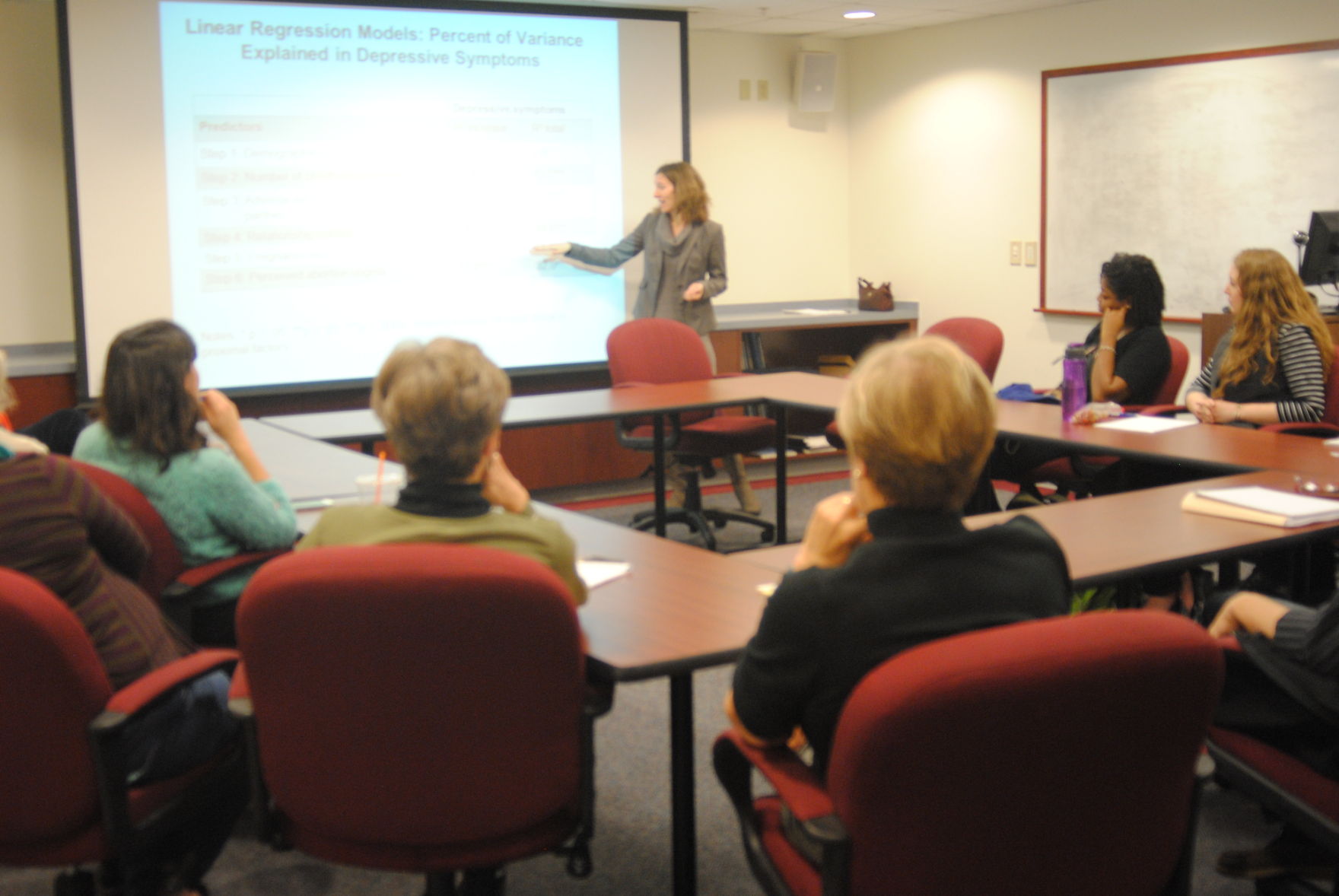
Family science professor Julia Steinberg speaks about her research on unintended pregnancies, abortion and mental health.
In front of about 20 students and faculty members Wednesday afternoon, family science professor Julia Steinberg spoke with enthusiasm about her research on pregnancy.
But Steinberg shed a different light on the topic. She presented her findings on the correlation between mental health and unplanned pregnancies during a seminar sponsored by the public health school’s family science department, the last of a three-part series.
“Having an unintended pregnancy — just as going away to college — is a normal life stressor, [but] I think for those who do have more symptoms of stress around abortion, it could be less if we reduce the stigma around having an abortion,” she said.
In her lab, Steinberg concentrated on two main questions: whether abortion can harm women’s mental health, and what leads to mental health problems around the time an abortion takes place.
She analyzed which psychosocial factors of women predict depression, anxiety and stress symptoms before an abortion. She interviewed women in the waiting room before contraceptive counseling and post-counseling to do this, she said.
Her test group was 74 percent nonwhites, 93 percent women who planned to have an abortion during their first trimester, 77 percent who never married, 64 percent who were from households that earned less than $10,000 annually and 35 percent who were educated at or below high school level.
One in three women interviewed indicated that they felt they would be looked down upon for having an abortion, she said.
While Steinberg presented the correlation, her research showed that abortion does not cause mental health problems. She explained her reasoning by giving an example of crime rates going up at the same time as ice cream sales.
“No one would say that ice cream sales cause crime rates, but rather by a third factor, which is the warm whether,” she said. “This is basically making the same argument, things like social disadvantage, prior mental health, disruptive life events, a recent breakup or unemployment — these things are related to having unintended pregnancy and abortion and they’re also associated with mental health.”
When Steinberg was a graduate student at Arizona State University, she noticed many professors studied the lack of opportunities for women in STEM fields, and she wanted to be able to focus on something different for women.
“No one focused on women having abortions and unintended pregnancies from a psychological background,” she said. “I had more of a calling in serving this group of people who seemed to be underserved and marginalized.”
For Steinberg, the unexplored link between psychological behavior and unintended pregnancy became a 10-year career. Her research contributes to scientific debate, could have policy or legal implications and inform abortion clinics about how to help women cope, she said.
These seminars are intended to “promote a culture of scholarly exchange,” family science professor and seminar coordinator Kevin Roy wrote in an email.
“Last year we invited speakers from outside campus,” Roy wrote. “This year, we realized that we have excellent resources here in our department, and that the series would allow us a chance to learn about and interrogate each other’s research.”
Roy wrote he hopes that professors and students feel inspired to “become more involved in collaborating with [Steinberg] as a result.”
Third-year graduate student Yassaman Vafai attended Wednesday’s lecture, as she had begun working with Steinberg immediately after she started as an associate professor at this university. The maternal and child health student said she chose to work with Steinberg after listening to her interview for the job at this university.
“I don’t want to do academia,” Vafai said. “Somehow, somewhere I want to do research, and to me [Steinberg’s fieldwork] is very interesting.”



